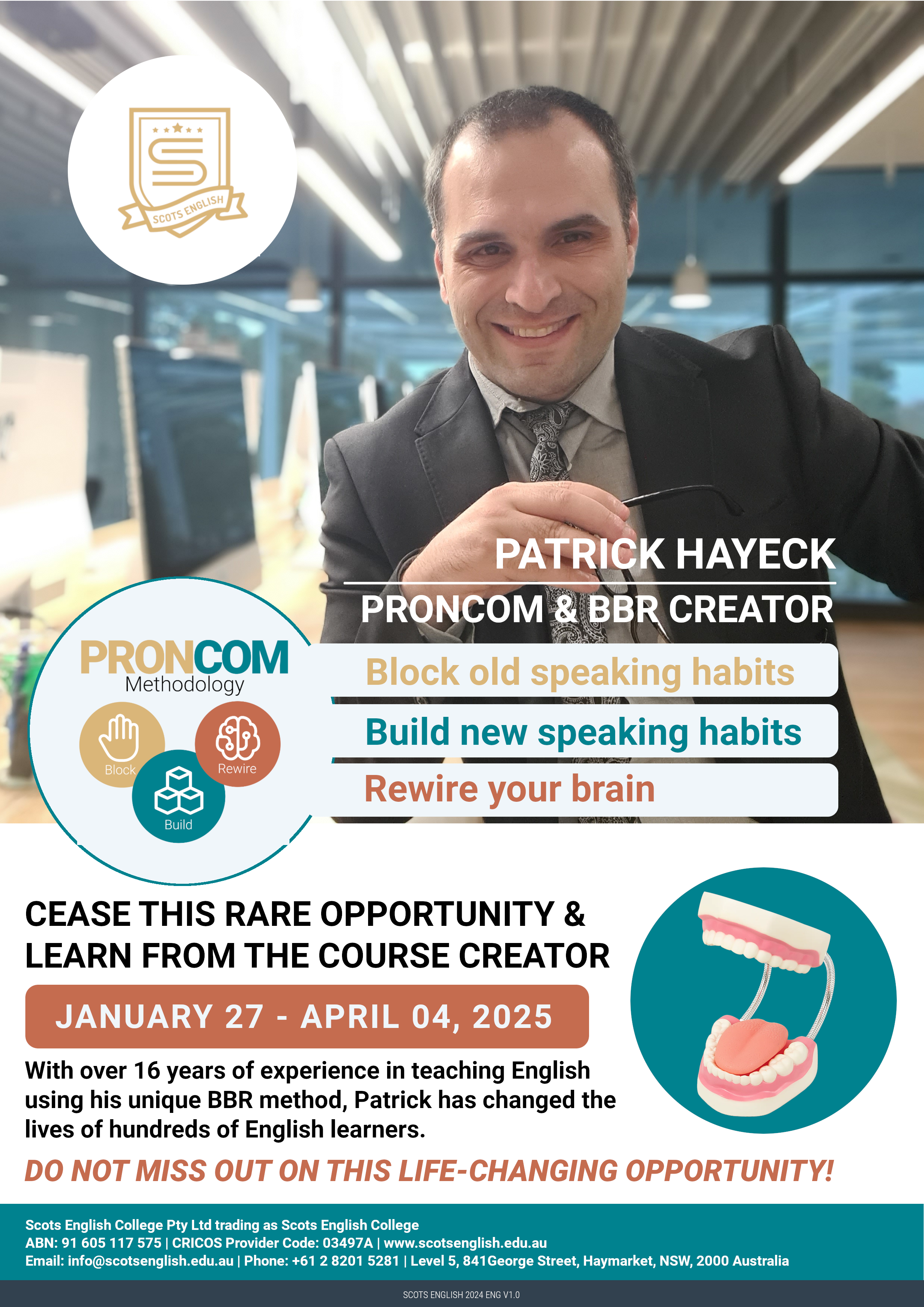-
Mastering the Pronunciation of ‘T’ and ‘D’ in Native English
•
Did you know that the letters ‘T’ and ‘D’ don’t always sound like /t/ or /d/ in native English speech? The way we pronounce them depends on the sounds that come before or after them. If you learn and apply the five pronunciation rules below, your spoken English will sound much more fluent and…
-

Experience The Magic Of the BBR method
•
As a CEO of SCOTS English College, I am normally tied up with management and rarely have the opportunity to do what I enjoy doing best, that is teach. I can’t wait to hop back in the classroom on Jan 27 and see and feel the magic of the BBR method! The only reason…
-
They hear how, not what you say
•
Is that fair? Who cares? Life’s not fair in many ways, is it? You might have the most remarkable vocabulary and the most accurate grammar and still be wondering why you can’t get people to like hanging out with you or just have a conversation with you. No one likes robots. No one likes…
-
How not to sound like a robot in English!
•
This article will be helpful for those of you who believe you have a good command of the English language. You can speak fluently, you know the words, you know the grammar, you’re clear enough for most native speakers, however, you might get the feeling that you don’t sound interesting when you speak English.…
-
Native English or Native American
•
They’re not the same. You can be speaking native English without a purely American accent, British accent, Australian accent, Kiwi accent, Canadian accent, Irish accent, Scottish accent or South African accent. It can be a mix of all these accents. Your English could borrow different attributes or characteristics from each one of the accents…
-
You’re done memorizing the dictionary, now what?
•
Isn’t that what many learners do? Literally study and memorize the dictionary from cover to cover? And how many learners study every grammar rule in the textbook? Some learners seriously know about the structure of the language more than many teachers. I have also met so many of them who are extremely fluent, and…
